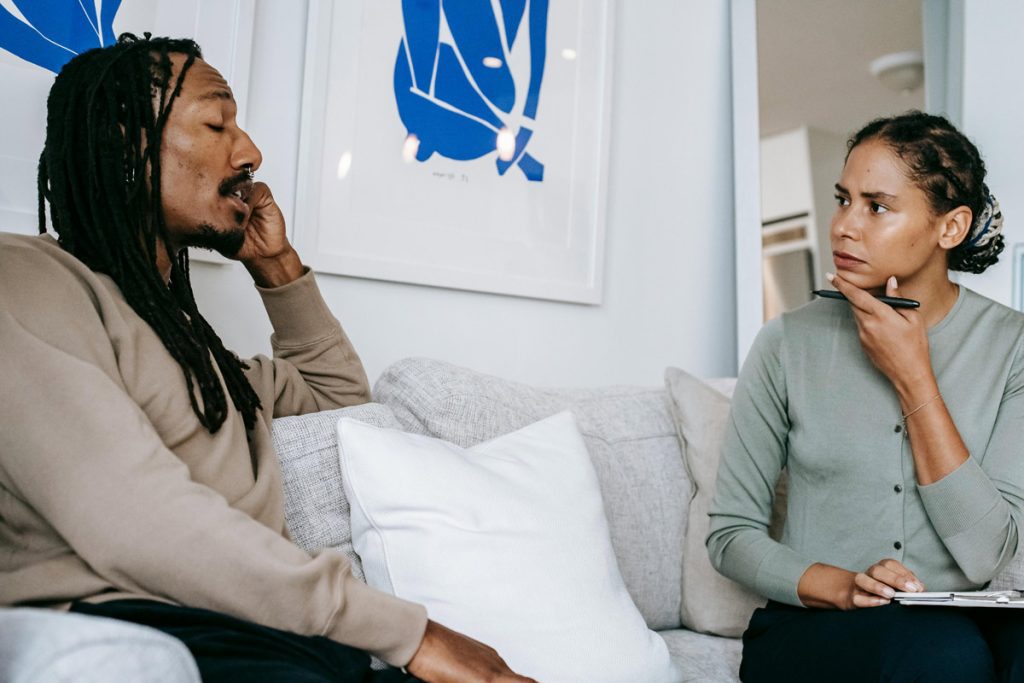The most important factor before beginning therapy is the connection you feel with your therapist. When a new client walks into my office, their body language often tells me how comfortable they are with me. Imagine being in a new country with a therapist of a different race or background—your comfort level will be shaped by how welcoming they are and how well they acknowledge cultural differences.
Culturally Sensitive Therapy: It’s All About the Healing Process
Picture this: You share with your therapist how you’re juggling family obligations and personal goals, and they suggest cutting ties entirely. If you come from an Asian culture (or any culture that values close family connections), that advice might feel unrealistic or even shocking. Culturally sensitive therapy recognizes that your race, ethnicity, religion, gender, sexual orientation, or cultural background plays a huge role in your experiences and your path to healing. A culturally aware therapist will understand the layers of your identity and respect your values while guiding you through your unique challenges.
Step 1: Know What You Want
Before you start browsing therapist profiles, be clear on what you want:
- Do you prefer a therapist from your own culture, or are you okay with someone from a different background?
- Is it important that they speak your first language?
- Are you looking for someone who specializes in working with people from your community?
- Do you simply need a therapist who respects and understands your cultural context?
For instance, if you’re a first-generation immigrant, a therapist who understands the struggle of cultural assimilation might resonate more. If you’re LGBTQ+ and dealing with a conservative environment, you may prioritize someone who creates a safe, affirming space.
Step 2: Trust Your Instincts
Your gut often gives you physical signals about whether you’re making a good decision. In this case, it can hint at whether a therapist is culturally sensitive and capable of supporting you on multiple levels.
Step 3: Check Social Media
Many therapists are on Instagram, Twitter, or TikTok. Following them lets you get a feel for their perspective and approach before reaching out.
Step 4: Be Patient
Don’t rush to judge your therapist in the very first session. You sought their help for a reason, so approach each session with an open mind. It takes time to build a connection. If you go in with the sole purpose of deciding whether the therapist checks all your boxes, you might miss out on the chance to receive the help you need. Allow yourself a little flexibility to see how the relationship develops.
The Bottom Line
Your background, identity, and life experiences matter. Bringing the right attitude to therapy helps your therapist connect with you, respect your cultural boundaries, and genuinely support your healing journey. Ultimately, it’s in your hands to take the time to find a therapist who feels right for you rather than expecting anyone to be a perfect fit from the start.
About the Author: Dr. Stuti Nilesh Pardhe is the founder of Etsah Trinity INC, a global organization dedicated to holistic healing, mental health care, and social impact. She is also a therapist on Talk Therapy. With a background in naturopathy, nutrition, and Neuro-Cognitive Behavioral Therapy (Neuro-CBT), she integrates scientific expertise with a faith-based approach to empower individuals and transform lives. Emphasizing “healing without medication” through brain health, nutrition, and self-awareness, Dr. Pardhe’s pioneering work in mental health advocacy focuses on resilience, self-discovery, and reducing the stigma around mental illnesses. She has been honored with awards such as the Rawat Award and the US Ambassador Award for her innovative contributions to community service and holistic healing practices.
Photo by Alex Green: https://www.pexels.com/photo/serious-ethnic-female-psychologist-listening-to-black-patient-complaints-5699487/
The opinions and views expressed in any guest blog post do not necessarily reflect those of www.rtor.org or its sponsor, Laurel House, Inc. The author and www.rtor.org have no affiliations with any products or services mentioned in the article or linked to therein. Guest Authors may have affiliations to products mentioned or linked to in their author bios.
Recommended for You
- The Truth about Relapse in Addiction Recovery - April 14, 2025
- The Power of Peer Support in Mental Health Recovery - April 10, 2025
- Artificial Intelligence in Anxiety Management: How AI Helps Users Cope with Anxiety Symptoms - April 3, 2025







